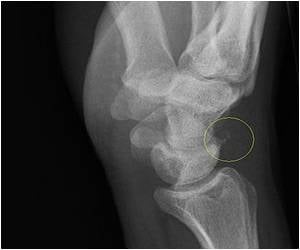A study at Hospital for Special Surgery (HSS) finds that while many overweight patients have the best intentions to lose weight after joint replacement.

Researchers also determined that patients who lose weight do better in terms of function and activity level two years down the road.
"Our findings represent the first report to present evidence that weight loss is associated with improved clinical outcomes, while weight gain is associated with inferior outcomes, although these results are really not surprising," said Geoffrey Westrich, MD, senior investigator and director of research, Adult Reconstruction and Joint Replacement at Hospital for Special Surgery.
More than one million knee and hip replacements are performed in the United States each year, according to the Centers for Disease Control and Prevention. (Knee = 719,000; Hip = 332,000).
Following almost 7,000 patients enrolled in the joint replacement registry at HSS, researchers found that while some patients lost or gained weight after joint replacement, the majority of patients maintained the same body mass index, or BMI, that they had prior to surgery.
The paper, titled, "Weight Change after Hip and Knee Arthroplasty: Incidence, Predictors and Effects on Clinical Outcomes," will be presented at the annual meeting of the American Academy of Orthopaedic Surgeons in New Orleans on March 14.
Advertisement
Using the HSS joint replacement registry, researchers examined the two-year change in body mass indices (BMI) for all patients undergoing elective hip or knee replacement surgery to relieve osteoarthritis.
Advertisement
- Seventy-four percent of total knee replacement patients and 84 percent of total hip replacement patients did not demonstrate a change in BMI following surgery.
- Patients who underwent knee replacement were more likely to lose weight after surgery than those undergoing hip replacement.
- Patients who were obese prior to joint replacement were more likely to lose weight than those who were of normal weight or overweight, but not obese.
- Overweight or obese females undergoing joint replacement were more likely to lose weight than their male or normal weight counterparts.
- Patients with higher preoperative activity scores were more likely to maintain their weight than to gain or lose weight.
When comparing clinical outcomes, investigators looked at Physical Component Scores (PCS), which consider such factors as pain and functioning, and Lower Extremity Activity Scores (LEAS), which assess activity levels.
- Knee replacement patients who lost weight following surgery demonstrated significantly better scores when compared to those who maintained or gained weight after surgery.
- Weight gain was associated with inferior PCS and LEAS scores for both hip and knee replacement patients.
Source-Eurekalert













